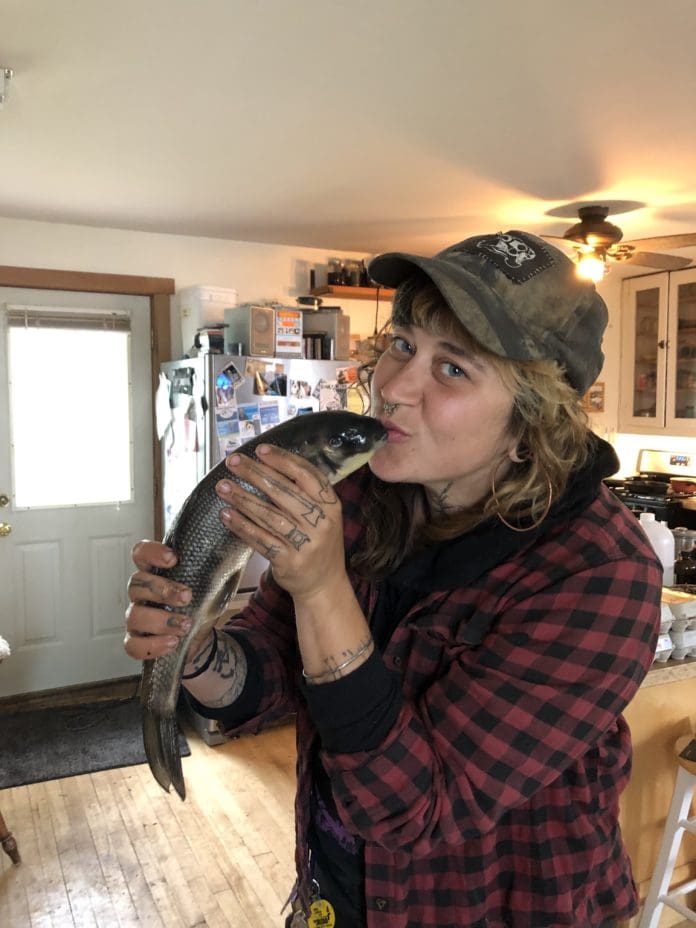The fishing opener refers to the start of fishing for walleye, northern pike, bass, and trout in lakes on inland waters of Minnesota. Seasons for some other species, including sunfish, crappie and channel catfish, are open all year. Seasons also vary on Minnesota waters that border other states or Canadian provinces. Muskellunge season opens on Saturday, June 3.
Although not every kind of fish lives everywhere, 162 species of fish can be found in Minnesota waters. Walleye are the most sought-after fish in Minnesota, followed by northern pike and muskie combined, then panfish, bass, crappie and trout.
Minnesota has 11,842 lakes that are 10 or more acres in size, 4,500 of which are considered fishing lakes. There are more than 16,000 miles of fishable rivers and streams, including 3,800 miles of trout streams.
There are about 1.4 million licensed anglers in Minnesota.
Fishing techniques and equipment vary depending on the species anglers are trying to catch. Popular walleye fishing techniques include casting a jig-and-minnow, pulling live bait through the water slowly, casting or pulling hard plastic lures through the water, and fishing with a bobber that suspends the bait in the water. Some of the same techniques can be used for bass, crappie, perch, sunfish, or other species, and anglers will use lighter line and smaller lures depending on the size of the fish they’re after.
Fishing Regulation Highlights
To fish in Minnesota, anglers 16 years or older are required to buy a Minnesota fishing license.
The DNR offers a variety of fishing license types to fit the needs of anglers. Some of the most popular licenses are an annual fishing license for $25, a married combination fishing license for $40, a sports license that allows angling and small game hunting for $41, and an annual license for Minnesota non-residents for $51.
A trout stamp is required to fish in designated trout water or harvest trout from any water.
Minnesota fishing regulations, including those new for 2023, and more information can be found in the Minnesota
Fishing Regulations on the DNR fishing page (mndnr.gov/fishing).
The DNR has translated the state’s 2023 fishing regulations into Hmong, Karen, Somali, and Spanish, the four most commonly spoken languages, apart from English, in Minnesota. The translated booklets are available in digital format on the DNR fishing page (mndnr.gov/ fishing) and in print at locations where they are likely to be in demand, including at select DNR offices, at license vendors and at some Minnesota state parks.
New gar limits are in effect this year. Anglers, spearers and bowfishers have a new possession limit in 2023 of up to 10 gar — the toothy, prehistoric fish native to Minnesota waters. The gar regulation change is part of a larger effort to sustainably manage gar and other native fish including buffalo, sucker, freshwater drum, bowfin, goldeye and bullhead, because these fish are critical contributors to aquatic ecosystems.
Economic Benefits
In Minnesota, fishing supports $4.4 billion in economic output through everything from angling-related tourism to the sales of boats and fishing gear, and fishing supports 28,000 jobs, according to the American Sportfishing Association (asafishing.org/wp-content/uploads/2021/11/Sportfishing-in-America-Economic-Report-March-2021.pdf).
Visit the DNR License Dollars at Work page (mndnr.gov/licensedollarsatwork) for more information about how the DNR spends fishing license dollars, and select a Fisheries area to find local information.




